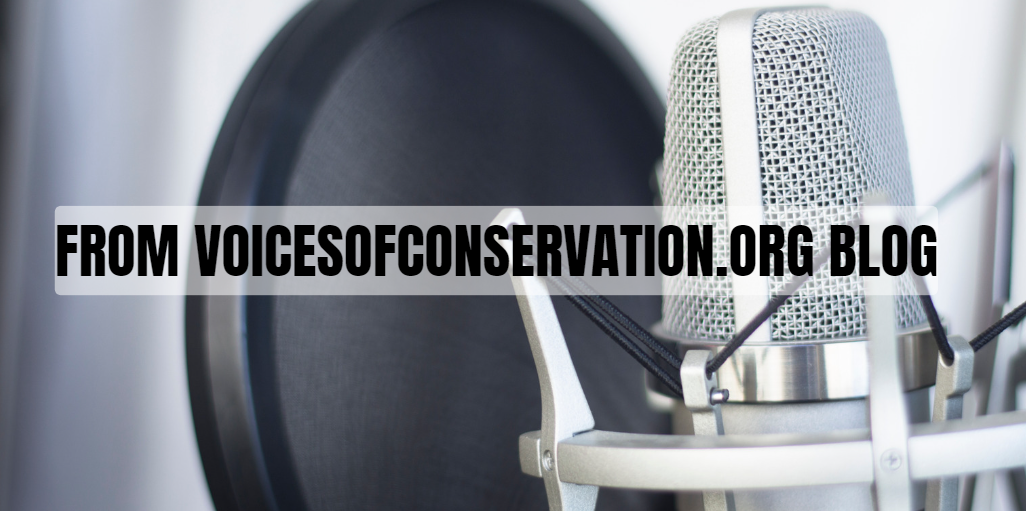The “Pfizer layoffs livestream” has emerged as a significant event, sparking widespread discussions across various platforms. As one of the world’s leading pharmaceutical giants, Pfizer has always been in the limelight, primarily due to its groundbreaking innovations and contributions to global healthcare.
However, this time, the company finds itself under scrutiny for reasons far less commendable. The company’s decision to announce layoffs through a livestream, perceived by many as a “casual” and insensitive approach, has ignited a firestorm of criticism.
This article will delve deep into the “Pfizer layoffs livestream” event, offering a detailed analysis that not only summarizes what happened but also provides original insights, interpretations, and the broader implications of this controversial move. By the end of this article, readers will have a clear understanding of the situation, its impact on the company’s workforce, and the potential long-term consequences for Pfizer’s reputation and operations.
Contents
- 1 Introduction to Pfizer’s Layoffs Livestream
- 2 The Context Behind Pfizer’s Decision
- 3 Analyzing the Pfizer Layoffs Livestream
- 4 The Broader Implications of Pfizer’s Layoffs Livestream
- 5 Lessons Learned and Moving Forward
- 6 Frequently Asked Questions (FAQs)
- 7 Conclusion
Introduction to Pfizer’s Layoffs Livestream
What Happened During the Pfizer Layoffs Livestream?
The “Pfizer layoffs livestream” refers to an event where Pfizer, instead of the traditional methods of conveying layoffs, opted to inform a significant portion of its workforce about their job termination via a livestream. This decision, seen as a modern approach to corporate communication, backfired dramatically. The nature of the delivery—deemed impersonal and insensitive—has drawn parallels to the infamous Better.com CEO gaffe, where employees were similarly laid off over a Zoom call.
The Significance of the Event
The significance of this event cannot be overstated. It not only highlights the evolving dynamics of corporate communication in the digital age but also raises serious ethical and moral questions about how companies should handle such delicate matters. For a company of Pfizer’s stature, which has been instrumental in combating global health crises, this misstep could have far-reaching implications.
The Context Behind Pfizer’s Decision
A Glimpse into Pfizer’s Corporate Culture
To understand why Pfizer chose to announce layoffs via a livestream, it is essential to first examine the company’s corporate culture. Pfizer has long been seen as a forward-thinking company, embracing technology and innovation not just in its products but also in its operations. However, this same penchant for modernization might have led to a misjudgment in this case, where efficiency was prioritized over empathy.
The Economic and Operational Pressures
Pfizer, like many large corporations, faces constant economic and operational pressures. The decision to downsize is often driven by a need to streamline operations, reduce costs, and maintain profitability in a highly competitive industry. However, the method chosen to communicate these layoffs—through a livestream—suggests a possible disconnect between the company’s leadership and its workforce.
Previous Incidents and Corporate Missteps
This is not the first time a major corporation has faced backlash for the way it handled layoffs. The Better.com incident is a recent example where a company faced severe criticism for the way it terminated employees. Pfizer’s situation is eerily similar, and it appears that lessons from past incidents were not heeded.
Analyzing the Pfizer Layoffs Livestream
The Employee Perspective
The Impact on Employee Morale
For employees, the “Pfizer layoffs livestream” was more than just a notification of job termination—it was a public, and to some, humiliating experience. The lack of personal touch and the cold, clinical nature of the announcement left many feeling devalued and disrespected. The immediate impact on employee morale was profound, with many expressing their outrage on social media and within internal company channels.
The Psychological and Emotional Toll
Beyond the immediate shock, the psychological and emotional toll of such an announcement cannot be understated. Job loss is already a stressful experience, and the manner in which it was communicated only exacerbated feelings of insecurity, fear, and anger among those affected. The public nature of the livestream also added a layer of embarrassment, as employees were essentially laid off in front of their peers and, potentially, the world.
The Company’s Rationale
The Role of Technology in Corporate Communication
From Pfizer’s perspective, the decision to use a livestream might have been seen as a way to efficiently and uniformly deliver the news to a large number of employees. In an era where remote work and digital communication have become the norm, the use of a livestream could have been perceived as a practical solution. However, this decision reveals a significant oversight in understanding the human element involved in such a sensitive matter.
Balancing Efficiency and Empathy
One of the critical miscalculations in this situation was the failure to balance efficiency with empathy. While the livestream was efficient in terms of reaching a large audience quickly, it lacked the personal touch that such a significant announcement necessitates. This balance is crucial in corporate communication, particularly when the message being delivered has such a profound impact on the lives of employees.
The Public and Media Reaction
The Outcry on Social Media
The “Pfizer layoffs livestream” quickly became a trending topic on social media platforms like Twitter, LinkedIn, and Facebook. Hashtags such as #PfizerLayoffs and #PfizerLivestream began trending, with thousands of posts criticizing the company’s approach. Employees, former employees, and the general public expressed their disappointment and anger, with many questioning Pfizer’s commitment to its workforce.
Media Coverage and Analysis
Mainstream media outlets also picked up the story, with headlines highlighting the insensitivity of the livestream approach. Analysts and commentators have drawn comparisons to other corporate blunders, and there is widespread speculation about the long-term damage this incident could cause to Pfizer’s reputation. The media has largely portrayed Pfizer’s decision as a major misstep, amplifying the negative sentiment surrounding the event.
The Broader Implications of Pfizer’s Layoffs Livestream
Impact on Pfizer’s Reputation
Trust and Loyalty Erosion
For a company like Pfizer, which relies heavily on its public image and trust, the fallout from the “Pfizer layoffs livestream” could be severe. Trust and loyalty are critical components of any successful business, particularly in the pharmaceutical industry, where public perception can directly impact sales and partnerships. The perceived callousness of the layoffs could lead to a significant erosion of trust among not only employees but also consumers and business partners.
Long-Term Consequences for Employee Relations
Internally, the event is likely to have long-lasting effects on employee relations. Even those who were not directly affected by the layoffs may feel a sense of unease and distrust toward the company’s leadership. This could lead to lower employee engagement, decreased productivity, and a higher turnover rate as employees seek employment elsewhere, where they feel more valued and secure.
The Ethical Considerations
The Morality of Mass Layoffs via Livestream
The ethical considerations of conducting mass layoffs via a livestream are significant. At the heart of the issue is the question of whether such a method respects the dignity and humanity of the affected employees. Critics argue that the impersonal nature of a livestream fails to acknowledge the individual circumstances of each employee, reducing them to mere numbers in a cost-cutting exercise.
Corporate Responsibility in Employee Welfare
Pfizer, like any large corporation, has a responsibility to its employees, not just as workers but as people. This responsibility includes ensuring that they are treated with respect and compassion, especially during difficult times like layoffs. The livestream approach has been widely viewed as a failure to meet this responsibility, raising questions about the company’s broader commitment to employee welfare.
The Future of Corporate Layoffs
Will Other Companies Follow Suit?
The “Pfizer layoffs livestream” has set a controversial precedent. It raises the question of whether other companies will adopt similar methods for mass layoffs or if the backlash Pfizer faced will serve as a cautionary tale. The incident may prompt companies to reconsider how they approach layoffs, emphasizing the need for compassion and personal engagement even in challenging circumstances.
The Role of Technology in Future Layoffs
The role of technology in corporate layoffs is likely to be a topic of ongoing debate. While technology offers efficiency and scalability, it must be used thoughtfully, particularly in situations involving job termination. Companies may need to develop new protocols that balance the benefits of technology with the need for empathy and personal connection.
Lessons Learned and Moving Forward
What Pfizer Could Have Done Differently
The Importance of Personal Communication
One of the critical lessons from the “Pfizer layoffs livestream” is the importance of personal communication. Had Pfizer opted for a more traditional approach—such as individual meetings or phone calls—the backlash might have been mitigated. Personal communication allows for a more compassionate and tailored approach, where employees can ask questions, express their concerns, and feel heard.
Transparent and Open Dialogue
Transparency is another crucial element that was lacking in Pfizer’s approach. Open dialogue with employees, where the reasons for layoffs are clearly explained, can help to build understanding and reduce resentment. Employees are more likely to accept difficult news when they feel that they have been given a clear and honest explanation.
Recommendations for Other Companies
Developing a Layoff Communication Strategy
Other companies can learn from Pfizer’s misstep by developing a clear and empathetic layoff communication strategy. This strategy should prioritize the emotional and psychological well-being of employees, ensuring that they are treated with respect and dignity throughout the process. Companies should also consider offering support services, such as counseling and job placement assistance, to help affected employees transition to new opportunities.
The Role of Leadership in Crisis Management
Leadership plays a vital role in how layoffs are perceived both internally and externally. Leaders must be visible, approachable, and willing to take responsibility for difficult decisions. In the case of Pfizer, stronger leadership presence during the layoffs—where executives personally addressed the employees—could have made a significant difference in how the event was received.
Moving Beyond the Livestream Incident
Rebuilding Trust and Loyalty
For Pfizer, the path forward involves rebuilding trust and loyalty among its employees and the public. This will require a concerted effort to demonstrate that the company values its workforce and is committed to treating them with respect. Transparent communication, employee engagement initiatives, and a renewed focus on corporate responsibility will be essential in regaining the trust that was lost.
Innovating with Empathy
As Pfizer continues to innovate in the pharmaceutical industry, it must also innovate in how it manages its workforce. The livestream incident serves as a reminder that technological advancements must be paired with empathy and human-centered approaches. By integrating these values into its operations, Pfizer can set a new standard for corporate responsibility in the digital age.
Frequently Asked Questions (FAQs)
1. Why did Pfizer choose to announce layoffs via a livestream?
Pfizer likely chose the livestream method for its efficiency in reaching a large number of employees simultaneously. However, this decision was met with widespread criticism due to its impersonal and insensitive nature.
2. What was the reaction to the Pfizer layoffs livestream?
The reaction was overwhelmingly negative. Employees, the public, and the media criticized Pfizer for its lack of empathy and the cold, clinical manner in which the layoffs were announced.
3. How has the Pfizer layoffs livestream affected the company’s reputation?
The incident has significantly damaged Pfizer’s reputation, leading to a loss of trust among employees and the public. It has raised serious questions about the company’s commitment to its workforce and corporate responsibility.
4. What lessons can other companies learn from Pfizer’s livestream layoffs?
Other companies can learn the importance of personal communication, transparent dialogue, and compassionate leadership in managing layoffs. The incident serves as a cautionary tale about the risks of prioritizing efficiency over empathy.
5. What steps can Pfizer take to rebuild trust after the layoffs livestream?
To rebuild trust, Pfizer should focus on transparent communication, employee engagement, and corporate responsibility. Demonstrating a genuine commitment to the well-being of its employees will be crucial in regaining the trust that was lost.
Conclusion
The “Pfizer layoffs livestream” has become a case study in how not to handle corporate layoffs. While the company may have intended to streamline its communication process, the decision to use a livestream for such a sensitive matter was widely perceived as a failure to prioritize the human element. As Pfizer moves forward, it must learn from this incident and take steps to rebuild trust and demonstrate a renewed commitment to its employees and the public. The broader implications of this event will likely influence how other companies approach layoffs in the future, highlighting the need for a balance between technological efficiency and human empathy.




